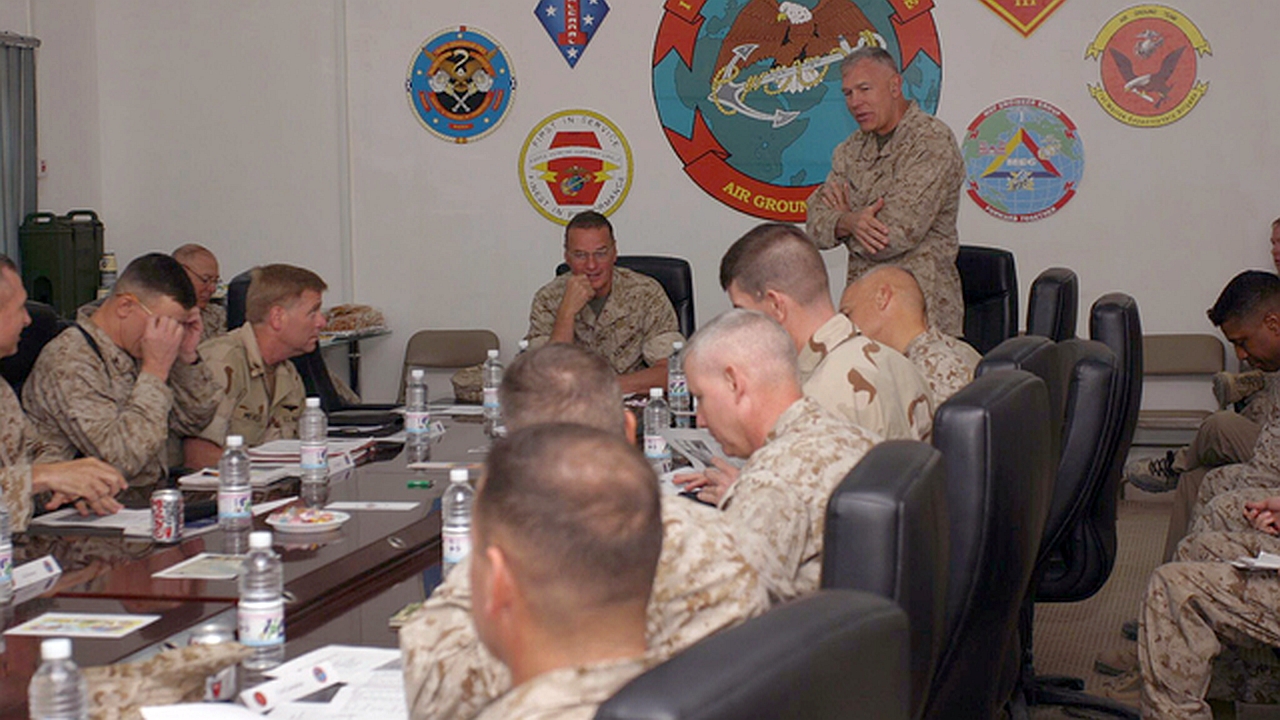
Organization Management Rhythm (part 6.6): Tools – Organization Calendar
This article is part 6.6 of a series of articles on Organization Management Rhythm.
The purpose of the Organization Calendar, often referred to as “the Organization Management Rhythm,” is to display the cross-functional meetings executed by the staff in support of the organization’s decision cycle and their shared understanding. The timeframe of the calendar depends on the organization’s rhythm cycle of the senior staff, but is often displayed in either weekly or monthly formats. Similar to the other operational management rhythm tools (Information Flow diagram (IFD), 7-Minute Drill Rollup, Time-Space Matrix, and Staff-Utilization Matrix), the events are color coded to denote whether they are organization touch-points or if they belong to one of the three typical critical paths (Operations, Plans, or Man-Train-Equip (MTE)).
The Organization Management Rhythm Manager (OMRM) should reference the calendar when considering changes to current meetings, events, or the creation of new events as it concisely illustrates the second and third order effects of changing the timing sequence of Organization Management Rhythm events. This is especially important when Organization Management Rhythm events are linked (i.e., the output of one event serves as the input of another event). The OMRM should also refer to the calendar and other Organization Management Rhythm management tools when determining if the requisite amount of white space exists between linked Organization Management Rhythm and staff events. This allows the senior staff and the staff adequate time between Organization Management Rhythm events to inform staff directorates of decisions and guidance and work on products required for future events, and coordinate staff actions.
Next part (part 6.7): Tools – Information Exchange Requirement (IER).
Acknowledgements: Thank you to Tomi Antill, Keith Davis, Elise Keith from Lucid Meetings, JFHQ-C Leadership, and Kendra Albright from Kent State University, without whose support this series would not have been possible.
Header image source: U.S. National Archives, Public Domain.






